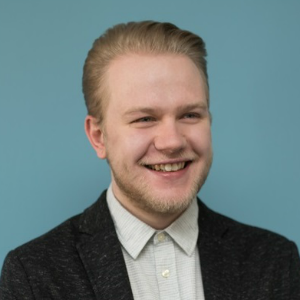
Career progression
1. Pharmacology BSc
2. PhD student
3. Academic teaching
Aidan is a research scientist, lecturer and Deputy Programme Director in BSc Medical Pharmacology at Swansea University
What is your career pathway to date (including your education)?
I studied BSc Biomedical Sciences (Pharmacology)at the University of Aberdeen, and then completed my PhD at Queen’s University Belfast. During my PhD, I was appointed as the Trustee (Early Career Pharmacologist) at the British Pharmacological Society until 2018. During my time as Trustee, I worked to improve representation of all members, as well as Equality, Diversity and Inclusion policies within the Society.
In 2018, I was appointed as a Lecturer in Medical Pharmacology at Swansea University Medical School and then took on the role of Deputy Programme Director in 2019. Also in 2019, I took over as Chair for the Early Career Pharmacologists Advisory Group, and led on the development of my own research group.
What do you do? What does a typical week look like to you?
My role is primarily focused around delivering the BSc Medical Pharmacology programme – I deliver lectures, practical classes and tutorials to students and meet with them regularly to help them achieve their career goals. I sit on several committees and boards within the University with the aim of ensuring the course is as successful and engaging for our students as possible.
As a principle investigator/lead scientist within the laboratory, I work with undergraduate and postgraduate students to investigate alternative to traditional animal models. We investigate the effects of drug compounds on novel model organisms and so I spent a lot of time helping design experiments, conducting them and then analysing the data. This work is regularly presented at national and international conferences.
I also devote a lot of my time to the British Pharmacological Society as Chair of the Early Career Pharmacologists Advisory Group as well as working with the Society to promote Equality, Diversity and Inclusion within the pharmacology community.
What do you like and dislike the most about your current position?
Work in the lab requires a high level of understanding, and so I enjoy the ability to use information I have gathered previously or found in published literature. I also enjoy the ability to use critical thinking to evaluate results generated in the lab. The difficulty with the position is that experiments often fail, and so need to be repeated. This can be repetitious and can also be disheartening as it feels like a waste of time.
Regarding the lectureship post, this offers an amazing opportunity to engage, encourage and enthuse young scientists about the field of pharmacology. You may think a one-hour lecture won’t take long to research, write and present: however, a one-hour lecture takes at least eight hours to make! I just want to talk about cool science all day every day, but sometimes you spend a long time making sure slides are fun and engaging and explain your points clearly.
How do you see your career further progressing in the future?
In the future, I would like to continue to develop teaching resources for students studying pharmacology, in order to make the course more hands-on, engaging and produce successful pharmacology graduates. Within my research, I look forward to further developing our models and rolling these out to the wider pharmacology community. In due course, I would like to work my way up the ‘academic ladder’ and be more involved in developing the programmes offered at Swansea University Medical School.
What three pieces of advice would you give someone keen on developing a career in your area of work?
When beginning a PhD, you will be leaving a university where you’re likely one of the most intelligent graduates. You will not be when you begin your PhD, you’re there to learn, not to know.
It’s just as important to close doors on opportunities as it is to open doors, not every opportunity will suit you.
Get your name out there, promote yourself, make your name stick and doors will open.